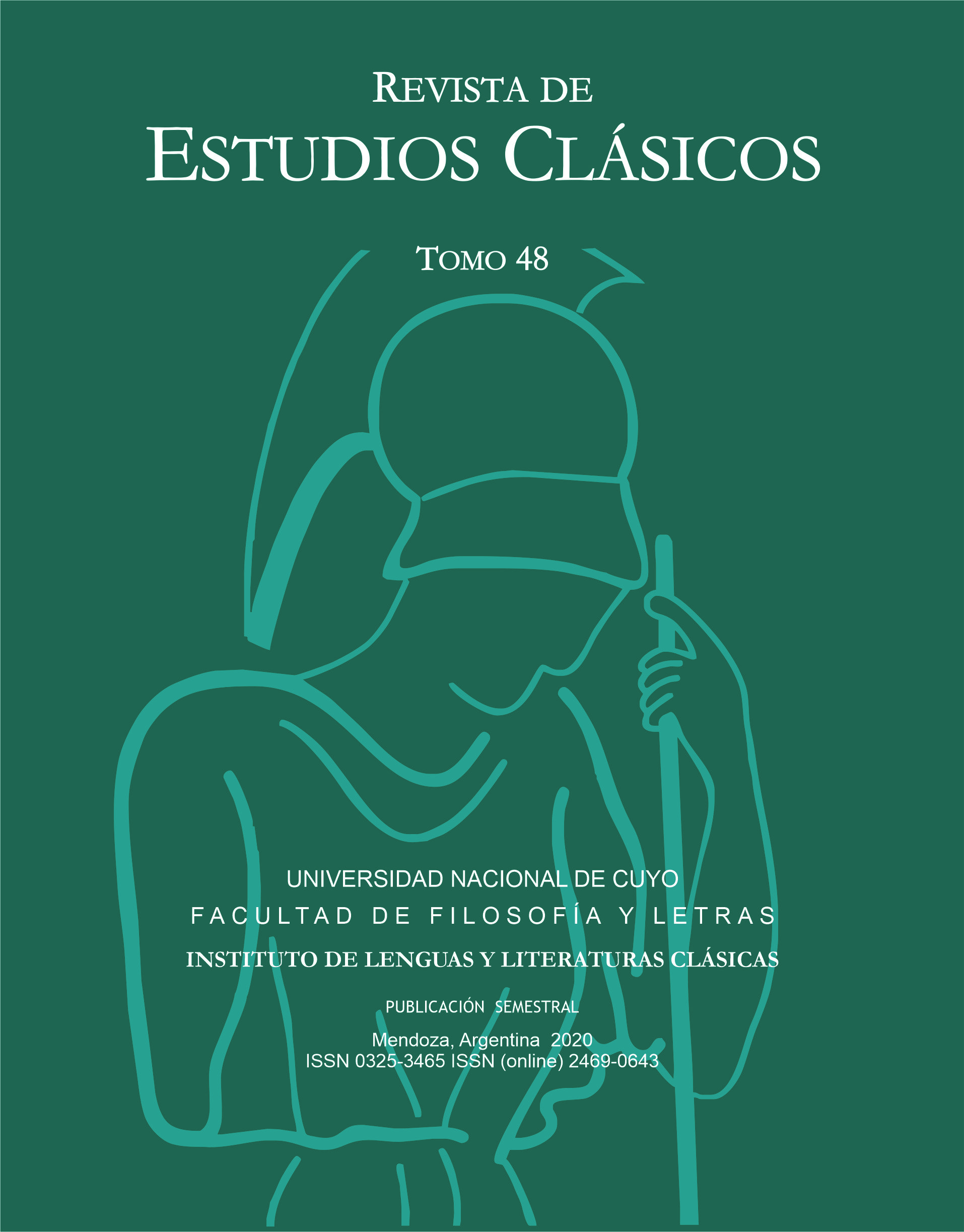Aquiles/Héctor and Arjuna/Karṇa: two visions of epic heroism
Keywords:
Achilles/Hektor, Arjuna/Kar?a, Greek Epic Hero, Indian Epic HeroAbstract
The paper analyzes Achilles and Hektor in Iliad IX and XVI, as well as Arjuna and Karṇa in Mahābhārata VI and VIII, aiming to compare both visions of heroism. On the basis of the analysis of quotes pertaining to these sources, two typologies are formulated: the ten qualities of the Greek epic hero, and the ten qualities of the Indian epic hero. As a conclusion, death and grief are proposed as thematic axes that are common to both the two pairs of characters and the two typologies of heroism.
References
Allen, N. J. (1999). Arjuna and the Second Function: A Dumézilian Crux. Journal of the Royal Asiatic Society, X (3). 403-418.
Allen, N. J. (2002). Mahābhārata and Iliad: A Common Origin? Annals of the Bhandarkar Oriental Research Institute, 83. 165-177.
Bailly, A. (2000). Dictionnaire Grec-Français. Paris: Hachette.
Beeks, R. & L. van Beek. (2010). Etymological Dictionary of Greek. Vol. I. Leiden/Boston: Brill.
Benardete, S. (2005). Achilles and Hector. The Homeric Hero. Indiana: St. Augustine’s Press.
Bowles, A. (Trans.). (2006). Mahābhārata. Book Eight. Karṇa. Volume One. New York: Clay Sanskrit Library.
Bowles, A. (Trans.). (2008). Mahābhārata. Book Eight. Karṇa. Volume Two. New York: Clay Sanskrit Library.
Cairns, D. (1993). Aidōs. The Psychology and Ethics of Honour and Shame in Ancient Greek Literature. Oxford: Clarendon Press.
Cherniak, A. (Trans.). (2008). Mahābhārata. Book Six. Bhīṣma. Volume One. New York: Clay Sanskrit Library.
Cherniak, A. (Trans.). (2009). Mahābhārata. Book Six. Bhīṣma. Volume Two. New York: Clay Sanskrit Library.
Homerus. 1920. Opera. Editio a David Munro et Thomas Allen. Oxford: Oxford University Press. Available at www.perseus.tufts.edu
Katz, R. C. (1989). Arjuna in the Mahābhārata. South Carolina: University of South Carolina Press.
Larrañaga, H. (1991-1992). Aquiles, héroe de héroes. Revista de Estudios Clásicos, 32. 65-107.
Leál, R. (2014). De Ká¹›ṣṇa a Tetis: lenguaje e influencia en Arjuna y Aquiles en la "Bhagavad-Gītā" y en la "Ilíada". Estudios Cásicos, Extra 2. 163-170.
Liddell, H.G. & R. Scott. (1996). Greek-English Lexicon. With a Revised Supplement. Oxford: Clarendon Press.
McGrath, K. (2016). Arjuna Pāṇá¸ava. The Double Hero in Epic Mahābhārata. New Delhi: Orient Black Swan.
Míguez, A. (2010). La dualidad de Aquiles y Agamenón en la trama de la "Ilíada". Ágora, 12. 9-36.
Nagy, G. (2013). The Ancient Greek Hero in 24 Hours. Massachusetts: The Belknap Press of Harvard University Press.
Pande, G. C. (1991). The Iliad and the Mahābhārata. En Graeco-Indica. India’s Cultural Contacts with the Greek
World (pp. 193-205). Delhi: Ramanand Vidya Bhawan.
Vidal-Naquet, P. (2000). El mundo de Homero. Barcelona: Ediciones Península.
Yamagata, N. (1994). Homeric Morality. Leiden/New York/Köln: Brill.
Downloads
Published
How to Cite
Issue
Section
License
Aquellos autores/as que tengan publicaciones con esta revista, aceptan los términos siguientes:
- Los autores/as conservarán sus derechos de autor y garantizarán a la revista el derecho de primera publicación de su obra, el cuál estará simultáneamente sujeto a laLicencia Creative Commons Atribución-NoComercial-CompartirIgual 2.5 Argentina (CC BY-NC-SA 2.5 AR). (https://creativecommons.org/licenses/by-nc-sa/2.5/ar/)que permite a terceros compartir la obra siempre que se indique su autor y su primera publicación esta revista.
- Los autores/as podrán adoptar otros acuerdos de licencia no exclusiva de distribución de la versión de la obra publicada (p. ej.: depositarla en un archivo telemático institucional o publicarla en un volumen monográfico) siempre que se indique la publicación inicial en esta revista.
- Se permite y recomienda a los autores/as difundir su obra a través de Internet (p. ej.: en archivos telemáticos institucionales o en su página web) antes y durante el proceso de envío, lo cual puede producir intercambios interesantes y aumentar las citas de la obra publicada. (Véase El efecto del acceso abierto).












